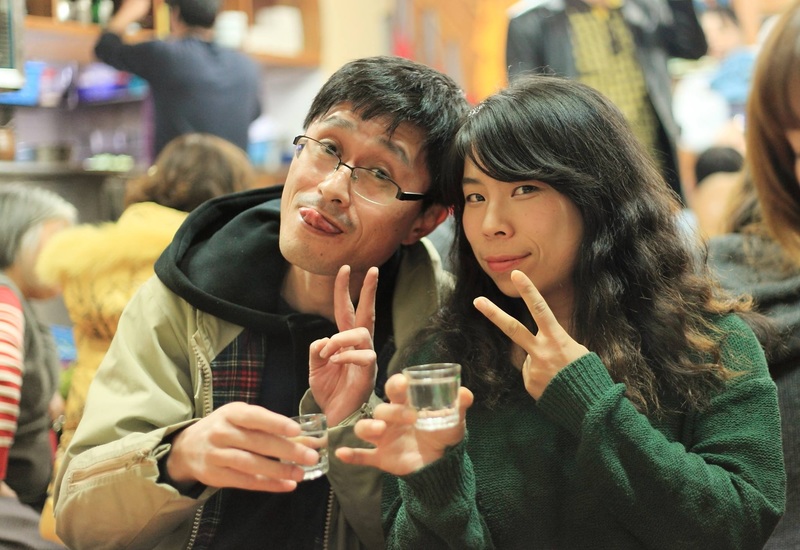This is the censored version of this post on sexual consent. You can view its uncensored version with sexually explicit (NSFW) photos on Pillowfort.
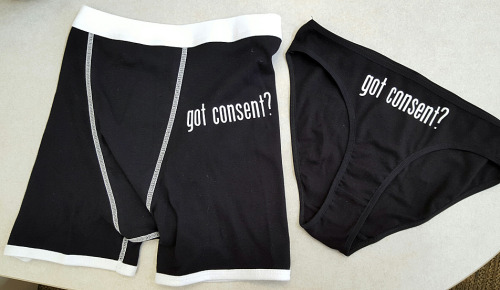
Content warning: discussion of sexual assault, including some details from real situations.
Sexual consent and sexual violence concerns us all. In the summer of 2014, my world was torn asunder. I discovered that one of my friends had sexually assaulted someone else I knew. The survivor’s partner had come to me on Facebook for help. They did because no one else in our mutual circle of friends took seriously the disclosure that our friend had raped another one of our friends.
I paced around the room in a panic for about 10 seconds. I struggled to come to terms with the notion that a close friend, someone with whom I had shared so many fun and happy memories, had sexually assaulted another one of my friends. Then I sat back down at my computer, and replied: “I believe you. I will do everything in my power to help you.”
Sexual violence is a problem that hurts bisexual people
According to the (U.S.) National Intimate Partner and Sexual Violence survey, 47% of bisexual men (and 75% of bisexual women!) report having experienced sexual violence at some point in their lifetime. This is higher than for gay men (40%), and far higher than for straight men (21%).
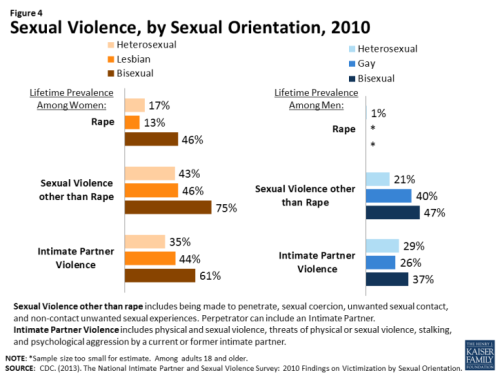
In my story, my friend who was the perpetrator was a bisexual cis man. He did not look the rapist part: he was short and slender, in no way physically powerful-looking, and he was friendly and charismatic.
My friend who was the victim was a polysexual, gender-fluid trans man (who was not out as trans at the time of the assault). While everyone should take sexual consent and sexual violence seriously, the impact is even bigger on us as bi+ people. In the aftermath of that assault, other people close to me confided that they had been sexually assaulted in the past too. Most of those people were men somewhere on the bi+ spectrum : bi, pansexual, heteroflexible, etc.
It shouldn’t be potential victims who do the work
I’m not going to give advice on how people can protect themselves from sexual assault, because I believe there’s little one can do to achieve that. More importantly, prevention efforts that target potential victims reinforce a poisonous idea: the notion that if the sexual assault survivor had done something differently, they would not have been assaulted. It shifts the blame from the perpetrator on to the survivor. Sexual assault survivors face that all the time.
People commit sexual assault for many reasons: because they are negligent; because they don’t give a flying f**k about sexual consent, either as they don’t care or lack education and knowledge; or because they want to hurt another human being. In the latter case, it often has more to do with power than with sexual gratification. There is no other reason. Sometimes though, non-consensual sex happens by accident or ignorance, despite the good intentions of everyone involved.
The solution lies with each of us
Each of us has power. We can use our power to heal and to make other people’s lives better. We can also misuse this power to hurt others. Each of us can end up creating a sexual situation where someone else is not consenting to what is happening.
The first step to addressing sexual violence is to acknowledge we can be part of the problem. I would love to tell you I have never been part of the problem. But I look back at times in the past where I have been too insistent in my advances towards some people, especially when I was drunk. My behaviour never crossed the line into actual assault. Still, it could have caused distress in other people. All I can hope now is that it did not cause too much damage, and work to be better.
Even when it comes to my former friend who sexually assaulted someone, I don’t see him as a monster. I don’t know what motivated him to act this way. Still, I know enough about him to see how he could choose to hurt someone else willfully in such a way. I don’t think he saw himself as someone who can sexually assault another person, and yet he did.
A note about women sexually assaulting men
Women sexually assault men too, and we rarely take men who suffered from these assaults seriously. Sexual assault survivors often feel unsafe to talk about their experience. This is a big issue in general. On top of that, men are less likely than female survivors to disclose having been abused. So it’s difficult to know the extent to which women sexually assault men. Still, the issue is underestimated.
According to the American Centers for Disease Control, nearly 6% of men report having been made to penetrate. This excludes other forms of sexual assault, which can be a violation just as much. If you’ve been sexually assaulted by a woman, your pain is real, and you deserve to be acknowledged in that experience. Please get support. You deserve help, and you’re worthy of receiving it.
In this post, I talk to us bi+ men about not becoming perpetrators, because you’re my audience. But anyone can become a perpetrator, just like anyone can become a victim—no matter their gender. Everyone one needs to hear on how to improve their attitudes on consent, not just men. Gender is a factor in sexual violence, though.
Women are more likely to have been sexually abused, and most sexual violence is carried out by men. We know too that having misogynistic—woman-hating—views is what men who sexually assault women have in common, I’d venture a guess that this is true also of men who sexually assault other men.
But the vast majority of men—of people really – don’t sexually assault people. This post is about making sure that each of us remains a part of that majority. We can influence others to remain part of that majority. And that we can be there to protect and support people perpetrators might target.
Toxic ideas on how men should act
There are a lot of toxic ideas on how guys are supposed to be sexually.
There’s the idea that guys need to be insistent, or to seduce or convince the other person to have sex. They do so instead of respecting boundaries and the other person’s pace.
There’s the idea that you’re supposed to shut up when sex happens and just do it. They do so instead of communicating about what is okay and what isn’t.
There’s the idea that you’re supposed to want sex all the time because you’re a guy. Therefore a guy can’t really be raped because he’d never say no to sex.
There’s the idea that men are supposed to perform in bed. They’re supposed to show their masculinity through sexual performance. This happens instead of just being present with their partners, and letting themselves to be vulnerable.
We could write an essay unpacking those toxic ideas about men and sex. But they also blend with a lot of stuff bi+ guys have to cope with. This is especially true when you’re still working towards self-acceptance.
Positive masculinity and learning consent
When guys need to get trashed to be able to f**k with other guys, they’re getting into risky territory when it comes to sexual consent and safer sex. We need to move beyond those toxic ideas, towards a positive masculinity in which we can be authentic and caring with others, also when sex is involved.
So this article is on how to foster a culture of positive masculinity and sexual consent. It’s about becoming part of the solution to the problem of sexual violence. It asks for humility and self-awareness. It asks you recognize there might have been times you were part of the problem rather than the solution. Like I’ve been in some situations. Or like my friends have been, when they chose to dismiss and minimize the assault that someone close to them committed.
Only when we accept that we can do better can we start building a culture of positive masculinity and consent. When we foster that culture, we’re protecting everyone. But we’re also working towards protecting our bisexual brethren. Sexual violence impacts us far too much.
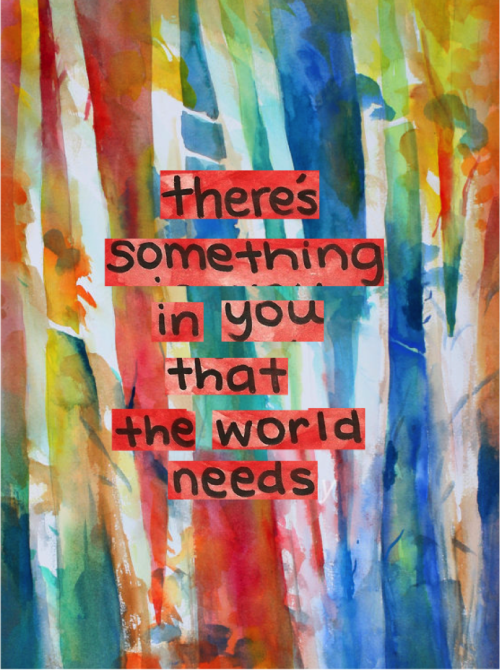
How to improve our attitudes about sexual consent
Assume the person in front of you is more vulnerable than they appear.
It can sound strange to think of yourself as someone who can be threatening to another person. You probably don’t see yourself as strong or intimidating. You probably even see yourself as vulnerable in many ways.
But it’s true of the human being in front of you too. They can be just as vulnerable as you are, maybe even more so. You don’t know what they might have been through. You don’t know how well they can assert themselves. This matters especially in situations where they fear rejection, or start being scared for their own safety. You don’t know what past abuse experiences they might have had. It’s possible they’re coping with trauma on a day-to-day basis.
Maybe they are buff and strong. Maybe they project an aura of self-assurance. But maybe what they’re doing is really just protecting themselves. They need you to be caring and kind; to slow down and take it at their own pace; or even to stop everything if necessary.
Ask for consent; reassure your partner they can say no; have conversations about what is okay and what isn’t; don’t insist; and check in once in a while.
Ask for permission before trying something you’ve never done with that person before. You want to kiss them? Say they’re cute and ask if they want to kiss you. You want to unzip their pants and play with their goodies? Ask if it’s okay.
Make it clear that if there ever is something they don’t want, or that if they change their mind and want to stop, you’ll respect that. Make them feel safe to say no when it’s needed. Ask them what they want to do with you, and what’s off-limits. Respect what they say, and don’t insist.
You don’t need to win their yes, and it’s okay when they don’t want something. Also, it’s not because one of your lovers loved a certain thing that another lover will be down for that thing too. Different people like different stuff.
Once in a while during sex, check in with your partner to see if everything’s still good. Pay attention to non-verbal cues, like the look on their face or what they’re doing with their body.
Sometimes a person doesn’t dare say they want to stop. But their facial expression and lack of enthusiasm should tell you something is off. On the other hand, it shows when someone’s having the time of their life! The point isn’t to ask for permission at every little step. It’s to foster a situation where the other person trusts you to respect what they want, and what they don’t want.
Also, this stuff applies no matter the gender of the people you’re shagging. Be mindful of gender dynamics when you’re not with another guy, or when you’re cis and your partner’s trans. But even with a cis guy, you need to be aware you can create a situation where non-consensual sex can happen.
A clear yes means yes, and you should assume anything else to mean no; look for enthusiastic consent.
Not hearing a “no” doesn’t mean you have consent. Your partner gives you that hungry look and tells you, “do me!”—great! You’re in business.
But sometimes you’re the one who started groping them, you don’t have a clear yes, and they seem really awkward about the situation. What you began probably isn’t consensual. You need to ask if it’s okay, and to let them know you’ll stop if they didn’t want that. Apologize when you started something unwanted without asking first.
In a lot of sexual assault situations, victims don’t say no. Something starts that’s out of their control; they get scared, they freeze. They realize the safest, easiest way of getting out of that situation without angering the other person is to just let it happen. They’ll do what needs to be done for it to be over as soon as possible.
So if you didn’t ask for permission and didn’t get a clear yes, assume things are not consensual. Sex doesn’t need to be enthusiastic to be consensual. Just think of, “I’m not really in the mood, but I like you and I’ll do this for you.” Still, the presence or absence of enthusiasm should be a big clue in gauging how consensual things really are.
When the person might be too drunk or high, postpone having sex with them, and make sure they stay safe.
Wild, drunken sex and sex on drugs can be a lot of fun, but when someone is too impaired, they might not be able to consent anymore.
They might be into it in the moment, but might not remember what happened the next day or be “what the f**k did I do?” On some drugs, people can become unable to talk during a bad trip. They might not be able to tell you sex is no longer okay.
When someone is barely conscious or passed out, doing sexual things to them is a huge no-no; it’s sexual assault, pure and simple. It’s also sexual assault when they’re too impaired to know what they’re doing.
Navigating consent and substances is tricky. It’s not always obvious how drunk or high someone is. Also, someone who’s intoxicated could end up being the one who’s too insistent and pressuring someone into having sex.
What do you do when you’re sober and your really drunk friend keeps insisting you bone them? What if you end up having sex that you don’t want because they’re too insistent, and they end up not remembering what happened at all the next day? It’s a complicated situation, and either one of you could end up feeling violated, ashamed, or guilty.
Bi+ guys and substances
A lot of bi+ people use alcohol and drugs, because having sex with someone of their own gender makes them anxious. It can create complicated situations. Be vigilant. Test how much you can talk with the other person as to what is okay and what isn’t.
When they’re acting as if they no longer have limits, you’re both in dangerous territory. You should postpone sex until they sober up.
If they can’t give you coherent answers when you check in, things need to stop immediately. You’ll have to make sure they’ll be safe and in good hands until they sober up. When someone consents to sex and passes out during it, the other person needs to stop immediately and make sure their partner stays safe.
Beyond situations in which sex could happen between the impaired person and you, help foster party environments where people look after other people when they’re too high or drunk. Make sure there are reliable people checking in on them regularly, and that they’re recovering in a safe place. Also, plan ahead how you will get someone home safe if anyone gets too f***ed up.
Only start something sexual when the person is awake, unless they told you it’s okay to begin something sexual while they’re sleeping.
It’s not because you and your hook-up have had sex last night that they want to have sex again, and you shouldn’t start groping them in their sleep. Wait until they’re awake, and ask if they’re up for round 2 (or 3, or 4).
You can end up sharing a bed with someone with whom you’ve never done something sexual. Expect them to be weirded out and upset if they wake up to your hand or your mouth fondling their boobs or genitals. This goes even when you realize they’re aroused in their sleep—if they popped a boner, for example.
When someone is a regular sex partner, and they’ve been clear they would love for you to wake them up with sex once in a while, then it’s okay. But clear that up with the person before you take the initiative on something like that.
Sometimes people just want to flirt for flirting’s sake, cuddle for cuddling’s sake, and kiss for kissing’s sake. They don’t necessarily consent to things going further than that.
We’re human—most of us get excited when someone we like flirts with us. We can get our hopes up that we’ll hit the sack with them by the evening’s end. So we can be disappointed when it doesn’t happen. And let’s face it – some people do use seduction to get things from others.
Still sometimes, people will like you and flirt with you, but they don’t want things to move too fast, or to go past a certain point. Maybe they’ll make out with you, but don’t want your hand down there. Or someone could be feeling vulnerable and want your cuddles and affection, but they need to learn to feel safer with you before they decide to get sexual with you.
They could be in a relationship with someone else, and the boundaries they’ve set with their partner or partners matter to them. For example, maybe kissing other people is okay, but that’s all.
We stereotype a lot of this stuff as being behaviour from women. But anyone, no matter their gender, can have reasons to avoid sex with you at this moment, despite being into you.
Maybe your male friend thinks you’re hot and wants to explore same-sex stuff, but he needs to start with just kissing and cuddling. Maybe your partner is trans and before their clothes come off, they need to feel safe you’re not going to pull weird sh*t. Or this person is a survivor of sexual violence, and they need things to move slowly. Or they’re asexual, and they love the kissing but not the shagging.
In short, there are many reasons why a person would express interest in you but not want sex right away – just like at some point, you could be the one who chooses to take it slowly.
Respect somebody expressing a sexual boundary. Don’t manipulate when that happens. Seek help if you deal with conflict in toxic ways.
Once again, we’re all human. Most of us have situations where we’ll use manipulation of some kind when we don’t get what we want : we insist, we cajole, we sulk, we throw tantrums, we make disapproving faces, we get passive-aggressive, etc.
I’m not saying this is okay, but none of us are perfect, and we all have things that push our buttons. But if you find yourself reacting that way to someone saying no to sex, to a specific sex act, to wanting to use condoms, etc. – that’s not cool. You’re trying to pressure someone into doing something sexual they don’t want to do, and you need to stop.
Sexual boundaries are sacred. You and a partner can negotiate at certain times. When you’re not just about to have sex. When the person has the time to think about the decision, and change their mind if necessary. And when it’s about something the person feels they can compromise on, and not about an absolute boundary. Still, these need to be open, honest and respectful. You shouldn’t manipulate your way into sex, period.
You could be someone who often ends up manipulating others in a sexual context when they say no to you. Or even to people who say no to you in general. If that sounds like you, think about getting help on how you deal with conflict.
Some of us learned to deal with conflict in toxic ways, sometimes because all we had around us were adults and friends who did the same things. It doesn’t make you a bad person, but for your sake and that of people around you, you need to own your patterns and work on your sh*t.
People can consent to sex, but then change their mind. Sex must stop when someone doesn’t want it anymore. A person who stops having sex doesn’t owe anyone an explanation.
Maybe you got that enthusiastic yes, started shagging, but the other person starts feeling weird about the whole thing and stops. It happens. Maybe you’re the one who changes their mind, and doesn’t want to have sex anymore. It’s okay, and sex should stop right there.
It can be frustrating for you or for the other person; that’s understandable. But when someone wants to stop, sex needs to stop, and the person doesn’t owe the other an explanation. They can give one if they feel comfortable enough. But sometimes you stop sex for really personal reasons you don’t feel like sharing with the other person yet (if ever), and people need to respect that.
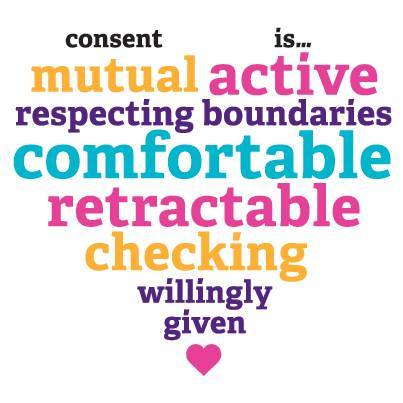
Be more mindful of consent during threesomes and group sex.
Threesomes and group sex are a big – and fun – topic in their own right that I won’t cover in detail here. But be mindful that people in general hesitate more to say no or to assert their boundaries in a group situation.
When folks plans group sex ahead of time, they should talk about their expectations, fantasies, and boundaries. When it’s a group sex event for a bigger group, people organizing it should set clear ground rules for everyone.
Spontaneous group sex situations can happen. When they do, be aware that it didn’t magically turn into an all-you-can eat sexual buffet, and that it’s still possible to communicate. People still have likes, dislikes, and boundaries, and some folks in the room might not be into you. In group sex situations, everything I mention in this post counts for triple.
Good group sex etiquette involves asking for permission before you touch a given person, and asking for permission before you watch some people more intently.
“Is it okay if I go down on you or you’d rather I wouldn’t?” Or, “can I watch the three of you and touch myself, or should I take my attention elsewhere?” These respectful ways of asking for things that leave room for a graceful no. Don’t be that person who keeps groping someone without permission even though it’s the third time they’ve moved your hand away.
Finally, when someone looks too intoxicated to consent at some point during group sex, make the extra effort to make sure they have a safe place to sober up. Many bigger group sex events have a non-sexual chill spot for when people need a break for whatever reason.
No one owes sex to anyone.
I’ll be the first person to tell you that we have to take people’s sexual needs seriously, and that they deserve compassion and understanding when it comes to those needs. We should ridicule no one for being horny, lonely, and sexually frustrated – and I believe everyone should get support in getting those sexual needs met. But no one owes sex to anybody, even when that person did them a favour, paid for their meal or date, or gave them shelter.
People can agree to trade something in exchange for a sexual service – it happens a lot, and it’s the basis for sex work. But when folks didn’t agree from the start this was the arrangement they were making, it’s wrong to expect sex in repayment for a favour someone did.
Let people around you know you will believe them if they ever tell you they are a survivor of sexual violence—even when the abuser is someone you like.
Give it some thought: odds are that someone around you has sexually assaulted another person at some point—it’s a common crime.
That person doesn’t have “rapist” tattooed on their forehead. They’re someone like you and me who are probably friendly and fun to hang out with. They have friends and loved ones like most other folks. What would you do if someone close to you told you that your best friend raped them? Or that someone from your family did?
Most of us grew up hearing that rape is one of the most horrible crimes, and that rapists are monsters. Yet we can have to face the realization that someone close to us has sexually abused someone else.
When this happens, we have a hard time reconciling the idea of “that monster the rapist » with that person we know and love having committed such a crime. What most people do is fall into denial, excuse what happened, try to explain that it wasn’t really non-consensual sex, or blame the victim. Those reactions are human and understandable, but sexual abuse survivors deserve to be believed.
False reports of sexual assault are rare as any other report of a crime – between 2 and 10%, depending on the studies and they were done. What is par for the course though is people not believing sexual assault survivors or blaming them for the abuse. You can make a difference for survivors around you by being a person who chooses to believe. Most sexual assault survivors fear that others won’t believe them or take them seriously, and they feel they are somehow responsible for the abuse – no matter their gender.
Good communication means good consent; good communication means more intimacy; and good communication means better sex too.
Communication and consent aren’t just about preventing bad things from happening. Talking with each other about what you want, what you don’t want, what you desire, and what makes vulnerable – these are the building blocks for intimacy, and for getting close to each other.
Many bi guys feel they have to get drunk to hook up with each other, and they follow scripts grounded in toxic masculinity. Just imagine instead if we chose to talk, to say what we long for and what frightens us, and made the decision to be there fully support each other.
Many of us do this with each other already, but we can build an even stronger culture of support. In our man/woman relationships too, trust, reassurance, openness and a desire to foster intimacy should drive our decisions.
But also, good communication leads to better sex. It’s when you start telling each other your desires and your boundaries, along with what works and what doesn’t, that you get to the point where mind-blowing sex happens. Whoever has been around the block sexually will tell you that. Otherwise, good sex only happens as a matter of luck, instead of being something for which you can work with your partners to have it happen on a regular basis.
Partners want to know that we are there for them, that we respect them, that they can build intimacy with us, and that we’re someone with whom they can have great sex. Partners who see that in us are partners who’ll stick around for more.
When we work together to build a culture of consent, we make each other safer – and our bisexual kin especially. Yet we also create a world where people are more free to explore their sexuality, and to live fulfilling sexual lives.



